Doctors Paid By Big Pharma for Prescribing Opioids
The industry is using speaker fees to reward physicians who prescribe the most.
A disturbing report from CNN (“The more opioids doctors prescribe, the more money they make“):
As tens of thousands of Americans die from prescription opioid overdoses each year, an exclusive analysis by CNN and researchers at Harvard University found that opioid manufacturers are paying physicians huge sums of money — and the more opioids a doctor prescribes, the more money he or she makes.
In 2014 and 2015, opioid manufacturers paid hundreds of doctors across the country six-figure sums for speaking, consulting and other services. Thousands of other doctors were paid over $25,000 during that time.
Physicians who prescribed particularly large amounts of the drugs were the most likely to get paid.
“This is the first time we’ve seen this, and it’s really important,” said Dr. Andrew Kolodny, a senior scientist at the Institute for Behavioral Health at the Heller School for Social Policy and Management at Brandeis University, where he is co-director of the Opioid Policy Research Collaborative.
“It smells like doctors being bribed to sell narcotics, and that’s very disturbing,” said Kolodny, who is also the executive director of Physicians for Responsible Opioid Prescribing.
The Harvard researchers said it’s not clear whether the payments encourage doctors to prescribe a company’s drug or whether pharmaceutical companies seek out and reward doctors who are already high prescribers.
“I don’t know if the money is causing the prescribing or the prescribing led to the money, but in either case, it’s potentially a vicious cycle. It’s cementing the idea for these physicians that prescribing this many opioids is creating value,” said Dr. Michael Barnett, assistant professor of health policy and management at the Harvard T.H. Chan School of Public Health.
Is there an innocent explanation for this? And isn’t it incumbent on physicians to refuse these conflicts of interest?

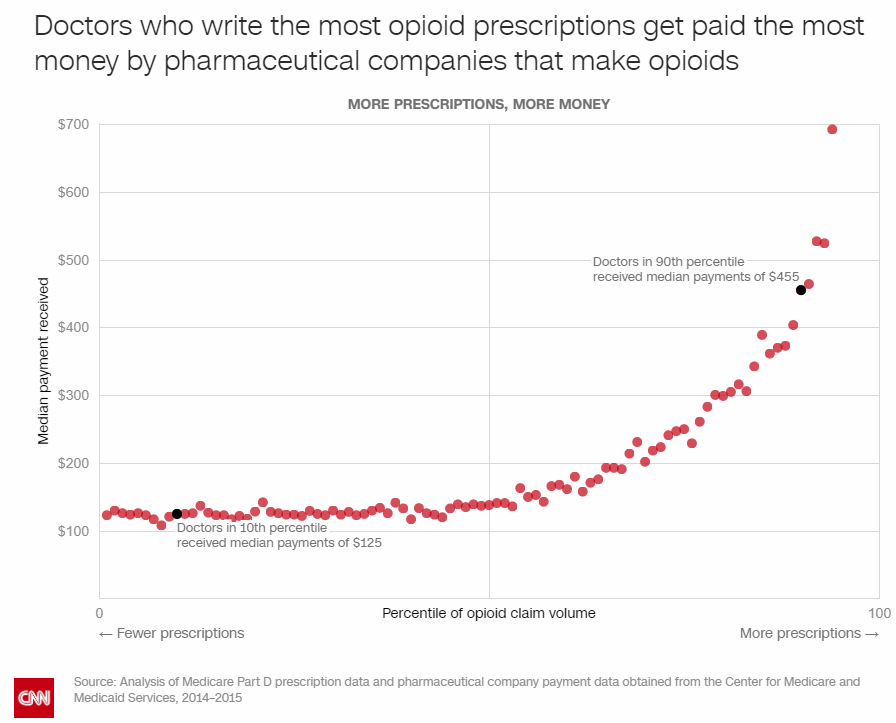

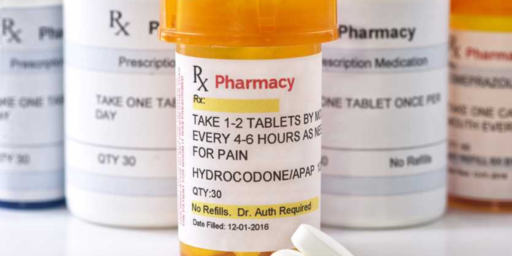
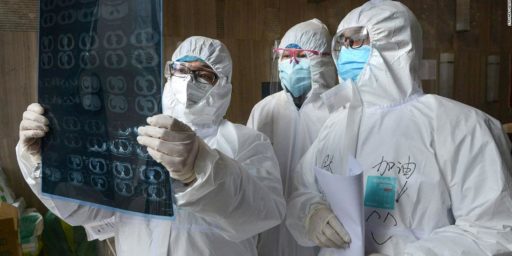
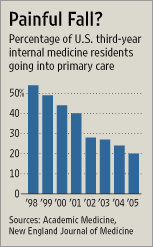
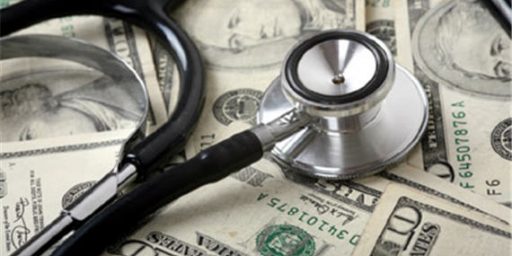
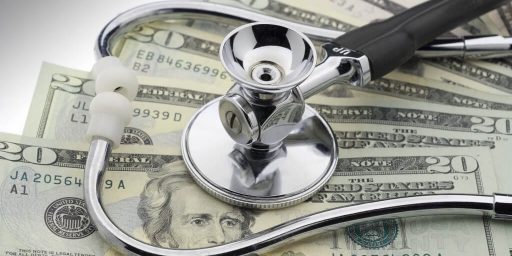
Not that this isn’t a worrisome story– but context is needed. This did not spring out of nowhere; there have been cozy relationships for decades between these groups, usually quite consensual and positively enjoyed by both sides. Somewhat akin to announcing that pharmacists drive over the speed limit, while people are dying in car crashes.
I work on the device side of FDA Regulated business and have always tried to avoid Pharma, specifically for ethical reasons like this. Another very unethical business practice of Pharma is its constant lobbying for relaxed and/or faster approval for drugs and indications under the guise that there are many drugs out there that could be saving peoples lives but “Big Government Regulators” are prohibiting it. Big Pharma simply does not invest money in revolutionary drugs (except for some charitable work that they do). They invest money in yet another cholesterol drug that has, say, 5% fewer people that get mild stomach upset when taking it, or a blood pressure medication that can be taken once a day instead of twice. They invest in drugs that mitigate symptoms and need to be taken for the rest of your life, and don’t invest in drugs that cure diseases and only need to be taken for a short time. It’s not evil. It makes business sense. But by so effectively pretending that they are doing otherwise, it prevents the public from realizing that this is a case where pure capitalism is not effecting the results we want and we need to come up with alternatives to Big Pharma if we are going to get really innovative drugs to market. Oh, and by the way, it will be phenomenally expensive and their will be many many failures.
But, you may be thinking, hasn’t there been some big breakthroughs? Yes and no. Almost always, a significant treatment is found to be a new use of an old drug, discovered with statistical analysis by publicly funded research as opposed to lab work and clinical trials done by drug companies. Another reason why you may think that you’ve heard of lots of new breakthroughs is the way the press reports on stuff coming out of initial (usually publicly funded) studies. If medicine progressed as fast as the popular press reported breakthrough therapies, there would be no diseases left by now and we would all be living to 120 in perfect health. The reality though, is that almost nothing works out in the end. Maybe the results were promising on a small group and advantages weren’t replicated with bigger groups. Or it worked on mice, but people aren’t mice. Or it worked, but for everyone person it cured it killed two. And so on. A good example is Malaria. Billions of public dollars have been spent (almost no Big Pharma dollars). And in the 30+ years I’ve been following it, there must have been 8-10 “breakthroughs” when we were going to have a cure or a vaccine or a way to get rid of malarial mosquitos. But the truth is that we are actually worse off than the 1960’s, when most malaria responded to chloroquine. Malaria is a tough disease. It has seven different phases, each of which only lasts for a few days at the most. By the time you can attack one phase it has moved into another. The methods of attack that have been developed over the years are fiendishly clever and a pleasure to read about it. And then they don’t work in humans, or can’t keep up with the rapidly mutating disease, or something else in the body destroys the treatment before it can reach the parasite, and so on. If there is one thing I’ve learned about treating disease, it’s that most things don’t work.
Not really. People forget – in this country, healthcare isn’t a right, it’s a for-profit business. When you walk into that office, remember you are there not as a friend but as a paying client. Maximizing profit off your life is good capitalist sense and not all doctors are the “I got into medicine to help people” type. Some just want a second Maserti and you’re how they get it.
Sure, same as banks, realtors and other type of business. They’re also not going to stop doing it unless you make them just like any other business taking advantage of legal shades of grey and ethical iffies. Just because they’re doctors doesn’t mean they’re moral people or paragons of virtue. Trust a business to do the right thing is a recipe for failure.
Be your own advocate and do your research. Don’t just blindly fill drug prescriptions – look them up and decide for yourself if it’s worth it. Ask for alternatives to opioids and accept they’re might not be as effective at painkilling. Ask if you really need to be drugged at all – some doctors are pill-happy and hand them out like candy for even minor illnesses (see antibiotics as reference).
Ultimately, you are responsible for you. You go to the doctor and accept his advice. You fill the prescription and ingest the pills. It’s your body that will suffer the addiction, not theirs so you need to think twice before starting down that road when they offer you the “good stuff”. Do you want pain now or a hell of a time later?
I think we should take President Donny Dennison at his word and execute these drug dealers.
@John Peabody:
I don’t understand your analogy here. Doctors are the gateway to legal drug prescriptions. They’re trusted to do so ethically.
@KM:
While physicians are ultimately in business, they’re also members of a profession, duty-bound to serve the public. Lawyers, doctors, engineers, soldiers, clergy, and others are given special trust in return for that expectation. That’s not to say they shouldn’t all be regulated. But the nature of a profession is that it’s mostly self-regulating, both institutionally and through imparting of a code of ethics that gets internalized in the membership during the education and selection process.
@MarkedMan:
Yes, there are a host of problems in trying to make medicine function as a market. And our patent system incentivizes that behavior, too–you have to stay ahead of the generic market.
@James Joyner:
That may be fine when it’s working. But this should probably be more like the Reagan’s “trust but verify”, applied to doctors instead of foreign adversaries.
Most of the people on the left are perfectly aware that regulations are onerous. But until the day that “pro-business” people prove they aren’t needed (which will never happen), we’re going to keep pushing them.
@James Joyner :
Self-regulation only works if the people involved are decent and willing to adhere to standards. Congress is a great example of a theoretically self-regulating body that consistently fails the ethical sniff test and needs to be given the hairy eyeball at every chance. Another is the Catholic Church and the on-going abuse scandals – self-regulation was an excuse to CYA and avoid actual justice.
Trust but verify. You know what they call the last-place student in a medical graduating class? Doctor. Know what the title of the guy who barely passed anatomy and pharmacology in med school is? MD. Back when I was practicing I encouraged my patients to research into the therapies I was providing and to make sure they were educated about their health before they just accepted a doctor’s word as gospel. It’s nice that they trusted me with their lives but frankly not all of us are worth that trust.
There’s a capitalist explanation-cartels reward top earners.
What is that saying about “It’s impossible to get a man to see truth when his wallet depends on the lie?” I always took it to mean that people could twist themselves into knots in order to convince themselves something is true, not that people simply discarded truth. And that probably applies to many physicians here. They get compensated for filling out a survey. The are not getting bribed to fill prescriptions. They are getting reimbursed for attending an educational seminar. They are not getting plied with a free trip to a luxury resort.
Once again, will Trump extend his “death to drug dealer’s” policy to the doctors occupying the extreme end of the spectrum? What about the drug companies pushing this compensation?
@matt bernius: Or the drug companies who lied about the addictiveness of their drugs and paid hundreds of millions already? Or wholesalers like McKesson Corporation who had no problem selling millions of pills to a pill mill in a town of 20,000?
This is hardly surprising, and in most cases far less intentionally nefarious than most of the above comments seem to assume. Do some physicians go looking for these opportunities to make a buck? Of course. But most are gradually seduced by what is essentially very effective, and highly targeted, advertising. This is not to say that they have no responsibility to recognize and escape from the pattern, but it goes like this:
-poor medical student has a hard time affording a book they want but don’t need, or doesn’t have time to make it to the cafeteria for lunch. A pharma rep is happy to give them the book at the lunch they provided for the required attendance lecture. It just happens to have the company logo stamped on it. Thanks pharma rep! That was very cool of you! Rep: no problem, here, have this (logo) pen too! I (subconsciously) owe you one!
-now an attending, when deciding what to prescribe, gets a vague warm feeling when thinking about prescribing that drug from the luncheons, and chooses it regularly
-pharma rep is happy to hear this, and provides samples to give out, along with pens and other stuff. Also, if you are going to that conference, the pharma rep would be happy to take you out to dinner
-pharma rep: you know, you have so much experience with using this drug. Obviously it is awesome or you wouldn’t be stupid enough to use it so much, right? it would be great if you could help out some other doctors who don’t use it even though we think they should. It’s probably because they need you to help them understand this. We’d be happy to pay you to talk at this dinner we are having for them. You’d fly first class of course.
-report: doctors get sucked in by the same tactics that convince everyone else to behave in ways that are not necessarily in their best interests! Doctor: no way! I’m smart, and also a professional with a moral responsibility to my patients. I would never do that. I use this drug because I have seen how awesome it is. Reports to the contrary activate my cognitive processes that convince me of this even more, because if true I am not the good, smart person I think I am. And I deserve to be compensated for helping everyone else see this too.
Again: this is an explanation, not an excuse. Medical schools and residencies should do a better job of limiting access by reps and making sure trainees are aware of the risk to inoculate them, and doctors should buy their own damn pens
@Erik: The freebie handout is a thing of the past. At least in the Med Device companies I’ve worked for there are no freebies anymore, except for educational material directly tied to your product. Even taking someone for coffee is a pain. I’m on the R&D side so when I get together with a surgeon or other clinician I always bring a sales or marketing guy with me because the requirements for reporting are so onerous and the limits on what can be spent are so low its a nightmare to make sure you got it right, even for a cup of coffee in the cafeteria after watching a surgery. The sales guys know everything required so I dump it all on them.
But there are other opportunities and I suspect Pharma is very aggressive on exploiting them. We sometimes bring in docs to interview about things we want to develop and of course we pay them for their time. Whenever there was a “doc in the house” an email would go out to all the engineering teams to ensure we booked them up for the whole day. Occasionally I would come across a doc that seemed surprised all these people were trouping into the conference room to ask them all kinds of questions. Once in a while I realized they were trying to give answers we wanted to hear rather than actually be helpful. It made me think they had been on other “consultations” where it was all wink-wink-nudge-nudge, oh by the way here’s your “fee”.
@Erik:
But just to be clear, you go on to describe situations that are intentionally nefarious. Just not on the part of the physicians.
Speaking of…
From Friday and our friends at the DOJ:
Doctor Sentenced for Healthcare Fraud, Accepting Kickbacks to Prescribe Highly Addictive Version of Fentanyl
@Franklin: perhaps. Some reps are probably fully aware of what they are up to, but I think many of them are just “selling” and don’t have any understanding of the second and third order effects
@MarkedMan: I do think things have gotten better, but mostly because of reporting regulations, not an understanding of the problem by physicians. So in some ways this is worse because now the “perks” are also a constrained supply making them more desirable.
I also think that the pharma reps are more aggressive, but one of my neighbors is a device rep and he seems to spend a lot of time taking surgeons to the golf course and going for drinks. They are friends, you see, so it’s just what friend do. Odd that the friends changed when he switched companies. N=1 I realize, but these reps still need to sell. That’s their job
@Erik: Yep. I’m sure there are dishonest sales reps. And many different ways of being dishonest. In one company I worked for there was this legendary rep who always had solid numbers. Trusted by his biggest hospital clients, they let him add inventory to their stock room on an as needed basis. But when one of them needed to do an emergency repair up in the ceiling, they found it stuffed full of out of date products. During slow sales periods he had been pulling it off the shelf and stuffing it in the ceiling…
That said, at least with Med Devices, we really do need those clinicians. After all, we don’t practice medicine ourselves and we really do need input, and doctors deserve to be compensated for sometimes lengthy consultations. So the potential for abuse is ripe. It speaks to the need for enough people to investigate and enforce, and quite frankly the “companies are people” defense is BS. At some point fines are just a cost of doing business. Some of the execs need to go to jail.
I wonder if this information makes it easier to sue doctors for prescribing opioids without any real medical need to do so.
This isn’t a new story. Crooked, Outwitting the Back Pain Industry and Getting on the Road to Recovery, Cathryn Jakobson Ramin, is mostly about back issues, but ineveitably intertwined is the long, sad, story of the Sackler family and their company, Purdue Pharma, who invented a lot of the tricks in the book on marketing drugs. They pushed hard to get Oxycontin accepted, paying a lot of doctors one way or another in the process, and pushed drug friendly pain management guidelines.
@MarkedMan: I agree with all that. There are plenty of really useful devices that wouldn’t exist without collaboration between industry and clinicians.
Erik and Marked Man– Sorry guys, the device industry is just as bad as pharma.
Steve